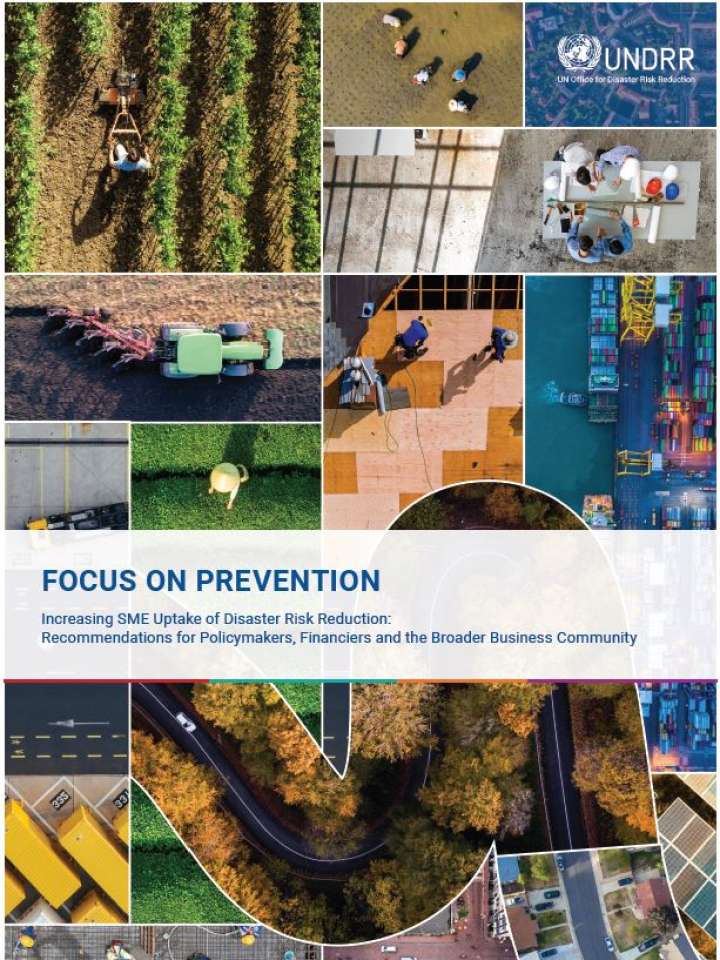Focus on prevention: Increasing SME uptake of disaster risk reduction: recommendations for policymakers, financiers and the broader business community
This report appeals to relevant stakeholders to take actions that not only support SMEs, but promote overall resilience and mutual benefit. SMEs, which generally have less than a few hundred employees, are crucial to the global economy, providing 50% of gross domestic product. They are also frequently a source of employment and livelihood for the world’s most vulnerable people. However, compared to larger businesses, SMEs are not only less likely to prepare for disasters, they are also much harder hit by them. Bearing about 75% of business losses, SMEs are significantly more affected by disasters than a larger business.
Pulling together evidence from case studies, stakeholder interviews, a workshop and some bespoke modelling, the report found four main reasons SME’s hesitate to invest in DRR, including a) lack of access to finance, b) lack of resilient business models, c) inefficient business contracts, and d) lack of prevention-focused business continuity planning, which outlines how a business will operate during an unplanned disruption in service.
Some report recommendations include:
- Kickstarting the market for financing DRR by increasing public and concessional finance, removing regulatory barriers to private finance, and enhancing the capacity of local financial institutions to appraise DRR investments.
- Encouraging the adoption of resilient business models by providing supporting infrastructure such as telecommunications, enhancing SME capacity and awareness, and supporting SMEs to diversify geographically.
- Promoting more efficient contracting models by addressing power balances, for instance through low-cost dispute resolution, and improving SME’s capacity to understand contracts and bargain collectively.
- Supporting business continuity plans, which offers a relatively low-cost way of implementing risk prevention measures.
